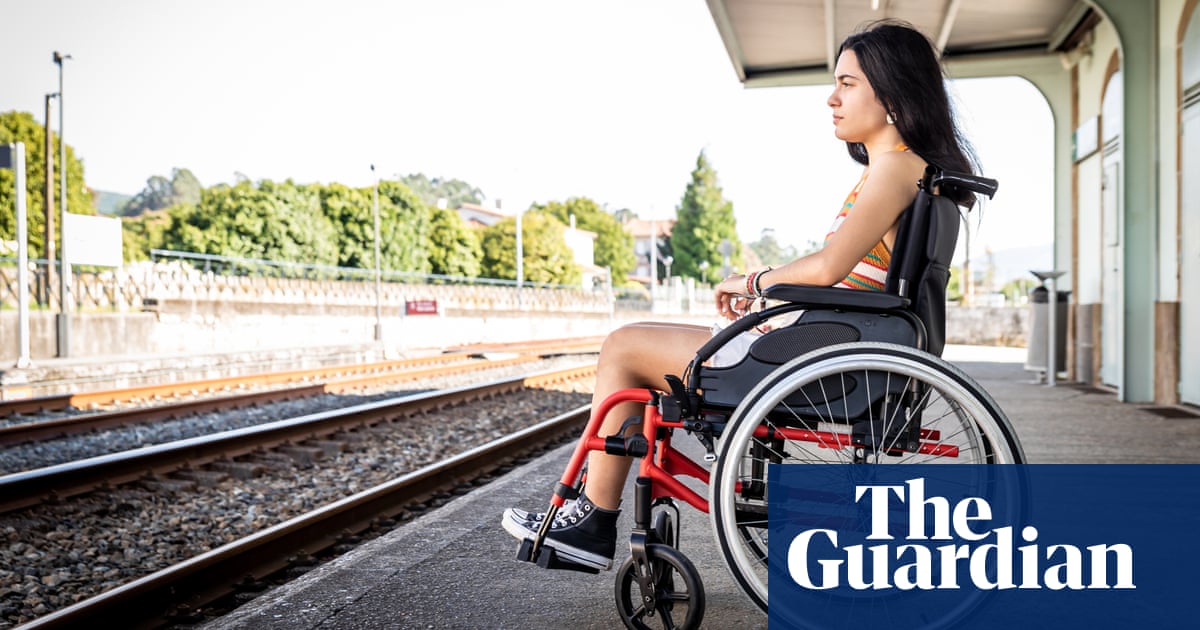When Tanni Grey-Thompson was left stranded at London’s King’s Cross station on her way to the opening ceremony of the Paralympic Games in Paris this week, she had to crawl on to the platform.
Lady Grey-Thompson, a former Paralympic athlete and crossbench peer, said she and other disabled passengers frequently suffered humiliating incidents travelling by train. “The system is just not working,” she said.
Nor did apologies from the train company’s managing director and a senior figure at the Department for Transport (DfT) ameliorate her. “It’s like, ‘and … ?’” said Grey-Thompson, a multiple gold medallist. “They are nice people but it doesn’t mean much … it just happens to so many other people.”
The Equality Act and the UN Convention on the Rights of Persons with Disabilities mandate equal access to transport for disabled people.
But research bears out Grey-Thompson’s suspicion that neither are being implemented on the ground: more than half of people with complex disabilities find public transport inadequate, with issues including overcrowding, a lack of staff support and negative attitudes from staff and other passengers.
Mike Brace CBE, a former chair of the British Paralympic Association and a member of the government’s Disabled Persons Transport Advisory Committee (DPTAC), said the UK’s public transport system was so “sprawling” that improving access for disabled people was almost impossible.
Brace, who sits on DPTAC’s rail working group, said the DfT took feedback from his group seriously but the implementation of their advice was almost impossible considering the diverse nature of the transport system.
“There are a number of good schemes going to help disabled people access the rail network but when there are 14 rail companies who need to implement those changes, there is an issue,” he said.
“The problem is the same with taxi refusals for guide dogs and wheelchairs, or airlines breaking wheelchairs when they’re in transit.”
Lucy Webster, a disability advocate, agreed that a lack of scrutiny and accountability of transport operators was a key issue, leading to ineffective complaint processes and fatigue among disabled passengers.

“There’s no regulator we can call that has any power, so why would companies care when they can get away with it?” said Webster, the author of The View From Down Here.
“The only way we can challenge these failures is through the law, and that is time-consuming, takes energy, understanding of process and more things that are simply not accessible to a lot of disabled people,” she said.
The Office of Rail and Road is the regulator responsible for monitoring and enforcing their implementation of accessible transport policies across the UK.
They do not set the overall strategy or possible interventions – those are set by the DfT – but can issue penalties if an operator defaults on their licence.
“Issuing penalties is rare,” said a spokesperson. “We aim to be fair and only do this when absolutely necessary, after having increased monitoring and meeting with operators to address the issues.”
The spokesperson said that the current situation was not ideal. “Improving accessibility for disabled users requires an industry-wide change in culture to make sure processes are followed and the needs of disabled users are consistently taken into account,” they added.
Emma Vogelmann, the head of policy at Transport for All, agreed that “systemic issues” blight the entire UK transport network for disabled people and said that “despite numerous complaints, systemic change is just not happening”.
Vogelmann believes a fundamental problem is the exclusion of disabled people from infrastructure and policy discussions, creating an echo chamber in which disabled people’s experiences are not at the forefront of anyone’s mind when public transport contracts and regulation are written.
“Rail is particularly problematic, with disabled people often facing barriers and fearing inadequate assistance,” she said. However, she said she was “cautiously optimistic” about potential improvements under the new government and operators.
Webster believes attitudes towards travel are informed by attitudes in wider society. “When I travel, I’m constantly asked questions that show no one, not staff or the public, think I should be out of the house at all. ‘Why are you out so late?’ is a common question I’m asked when on public transport.”
Harriet Edwards, the head of policy at the deafblind charity, Sense, said all these problems create the perfect storm in which the government continues to fail in its responsibility to ensure transport operators comply with the law.
“Despite the rhetoric, there has been little action to change the situation on the ground for disabled people,” she said. “The lack of policy prioritisation and funding is a significant barrier to making the necessary changes.”
This, she said, was economically unjustifiable. “Making the transport system accessible could generate £72.4bn a year in economic benefits,” she said. “Accessible transport helps tackle loneliness and isolation, with significant health and social care impacts.”
